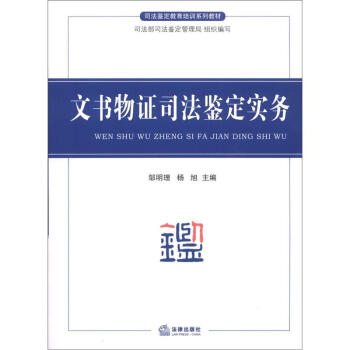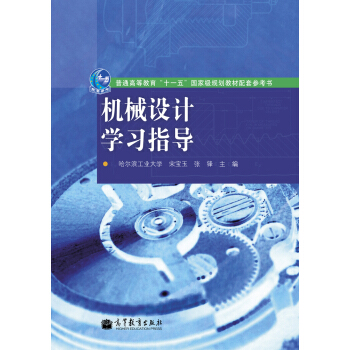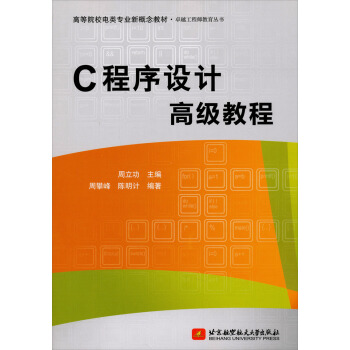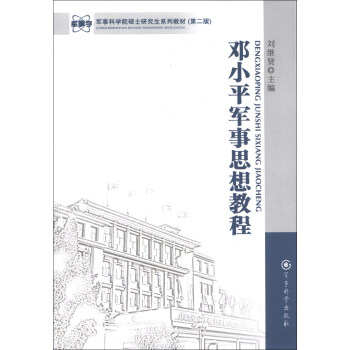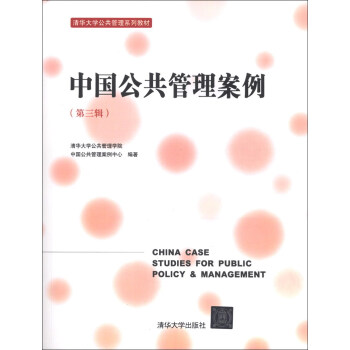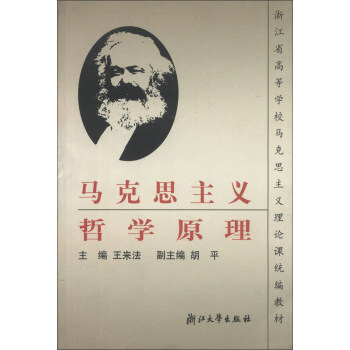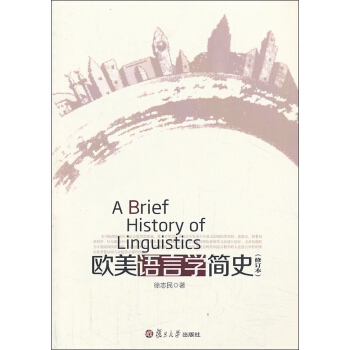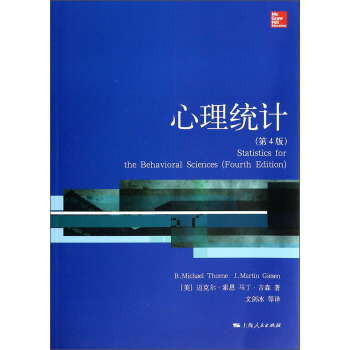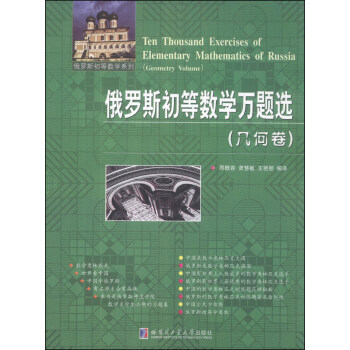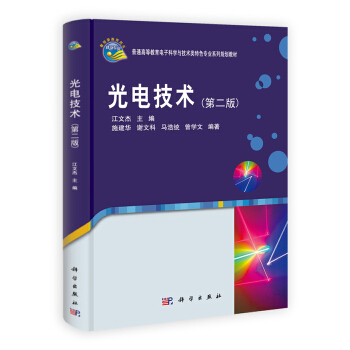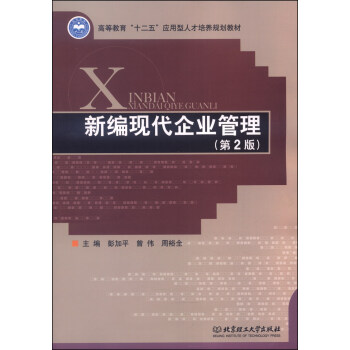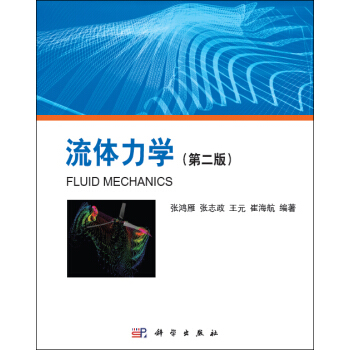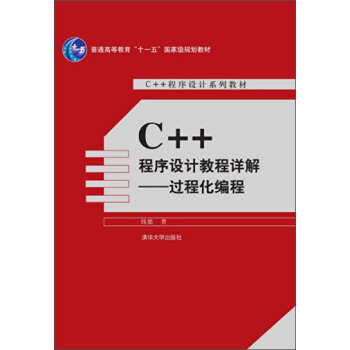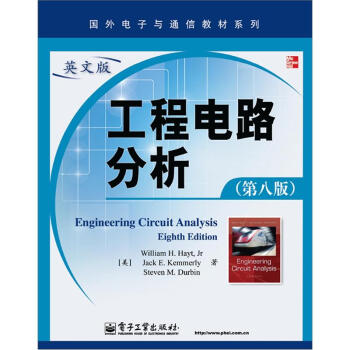

具體描述
內容簡介
《工程電路分析(第8版)(英文版)》首版於1962年,目前已是第八版。作者從3個最基本的科學定律推導齣電路分析中常用的分析方法及分析工具。書中首先介紹電路基本參量及基本概念,然後結閤基爾霍夫電壓和電流定律,介紹節點和網孔分析法及疊加定理、電源變換等常用電路分析方法,並將運算放大器作為電路元件加以介紹;交流電路的分析開始於電容、電感的時域電路特性,然後分析RLC電路的正弦穩態響應,並介紹交流電路的功率分析方法,接著還對多相電路、磁耦閤電路的性能分析進行瞭介紹;本書還介紹瞭復頻率、拉普拉斯變換和s域分析、頻率響應、傅裏葉分析、二端口網絡等內容。作者注重將理論和實踐相結閤,無論例題、練習、章後習題還是正文中的應用實例,很多都來自於業界的典型應用,這也是本書的一大特色。目錄
INTRODUCTION
1.1 Overview of Text
1.2 Relationship of Circuit Analysis to Engineering
1.3 Analysis and Design
1.4 Computer-Aided Analysis
1.5 Successful Problem-Solving Strategies
READING FURTHER
CHAPTER 1 BASIC COMPONENTS AND ELECTRIC CIRCUITS
2.1 Units and Scales
2.2 Charge, Current, Voltage, and Power
2.3 Voltage and Current Sources
2.4 Ohm’s Law
SUMMARYAND REVIEW
READING FURTHER
EXERCISES
CHAPTER 2 VOLTAGE AND CURRENT LAWS
3.1 Nodes, Paths, Loops, and Branches
3.2 Kirchhoff’s Current Law
3.3 Kirchhoff’s Voltage Law
3.4 The Single-Loop Circuit
3.5 The Single-Node-Pair Circuit
3.6 Series and Parallel Connected Sources
3.7 Resistors in Series and Parallel
3.8 Voltage and Current Division
SUMMARYAND REVIEW
READING FURTHER
EXERCISES
CHAPTER 3 BASIC NODAL AND MESH ANALYSIS
4.1 Nodal Analysis
4.2 The Supernode
4.3 Mesh Analysis
4.4 The Supermesh
4.5 Nodal vs. Mesh Analysis: A Comparison
4.6 Computer-Aided Circuit Analysis SUMMARY AND REVIEW READING FURTHER EXERCISES
CHAPTER 4 HANDY CIRCUIT ANALYSIS TECHNIQUES
5.1 Linearity and Superposition
5.2 Source Transformations
5.3 Thévenin and Norton Equivalent Circuits
5.4 Maximum Power Transfer
5.5 Delta-Wye Conversion
5.6 Selecting an Approach: A Summary of Various Techniques
CHAPTER 5 THE OPERATIONAL
6.1 Background
6.2 The Ideal Op Amp:
6.3 Cascaded Stages
6.4 Circuits for Voltage
6.5 Practical Considerations
6.6 Comparators and
CHAPTER 6 CAPACITORS AND
7.1 The Capacitor
7.2 The Inductor
7.3 Inductance and
7.4 Consequences
7.5 Simple Op Amp
7.6 Duality
7.7 Modeling Capacitors and Inductors with PSpice
CHAPTER 7
BASIC RL AND RC CIRCUITS
8.1 The Source-Free RL Circuit
8.2 Properties of the Exponential Response
8.3 The Source-Free RC Circuit
8.4 A More General Perspective
8.5 The Unit-Step Function
8.6 Driven RL Circuits
8.7 Natural and Forced Response
8.8 Driven RC Circuits
8.9 Predicting the Response of Sequentially Switched Circuits
CHAPTER 8
THE RLC CIRCUIT 1
9.1 The Source-Free Parallel Circuit 1
9.2 The Overdamped Parallel RLC Circuit
9.3 Critical Damping
9.4 The Underdamped Parallel RLC Circuit
9.5 The Source-Free Series RLC Circuit
9.6 The Complete Response of the RLC Circuit
9.7 The Lossless LC Circuit
CHAPTER 9 SUMMARY AND REVIEW READING FURTHER EXERCISES SINUSOIDAL STEADY-STATE ANALYSIS
10.1 Characteristics of Sinusoids
10.2 Forced Response to Sinusoidal Functions
10.3 The Complex Forcing Function
10.4 The Phasor
10.5 Impedance and Admittance
10.6 Nodal and Mesh Analysis
10.7 Superposition, Source Transformations and Thévenin’s Theorem
10.8 Phasor Diagrams
CHAPTER 10 AC CIRCUIT POWER ANALYSIS
11.1 Instantaneous Power
11.2 Average Power
11.3 Effective Values of Current and Voltage
11.4 Apparent Power and Power Factor
11.5 Complex Power
CHAPTER 11 POLYPHASE CIRCUITS
12.1 Polyphase Systems
12.2 Single-Phase Three-Wire Systems
12.3 Three-Phase Y-Y Connection
12.4 The Delta (_) Connection
12.5 Power Measurement in Three-Phase Systems
CHAPTER 12 MAGNETICALLY COUPLED CIRCUITS
13.1 Mutual Inductance
13.2 Energy Considerations
13.3 The Linear Transformer
13.4 The Ideal Transformer
CHAPTER 13 COMPLEX FREQUENCY AND THE LAPLACE TRANSFORM 3
14.1 Complex Frequency 3
14.2 The Damped Sinusoidal Forcing Function
14.3 Definition of the
精彩書摘
Voltage We must now begin to refer to a circuit element, something best defined in general terms to begin with.Such electrical devices as fuses, light bulbs, re-sistors, batteries, capacitors, generators, and spark coils can be represented by combinations of simple circuit elements.We begin by showing a very general circuit element as a shapeless object possessing two terminals at which connections to other elements may be made (Fig.2.8).There are two paths by which current may enter or leave the element.In subsequent discussions we will define particular circuit elements by describ-ing the electrical characteristics that may be observed at their terminals.In Fig.2.8, let us suppose that a dc current is sent into terminal A,through the general element, and back out of terminal B.Let us also assume that pushing charge through the element requires an expenditure of energy.We then say that an electrical voltage (or a potential difference) exists be-tween the two terminals, or that there is a voltage "across" the element.Thus, the voltage across a terminal pair is a measure of the work required to move charge through the element.The unit of voltage is the volt,2 and 1 volt is the same as 1 J/C.Voltage is represented by V or v.A voltage can exist between a pair of electrical terminals whether a current is flowing or not.An automobile battery, for example, has a voltage of 12 V across its terminals even if nothing whatsoever is connected to the terminals.According to the principle of conservation of energy, the energy that is expended in forcing charge through the element must appear somewhere else.When we later meet specific circuit elements, we will note whether that energy is stored in some form that is readily available as electric energy or whether it changes irreversibly into heat, acoustic energy, or some other nonelectrical form.We must now establish a convention by which we can distinguish be-tween energy supplied to an element and energy that is supplied by the element itself.We do this by our choice of sign for the voltage of terminalA with respect to terminal B.If a positive current is entering terminal A of the element and an external source must expend energy to establish this cur-rent, then terminal A is positive with respect to terminal B.(Alternatively,we may say that terminal B is negative with respect to terminal A.)前言/序言
用戶評價
評分作為一名剛入門電子工程領域的學生,我在尋找一本能夠係統性地梳理電路知識的教材時, stumbled upon "Engineering Circuit Analysis (8th Edition)". 盡管這本書的篇幅不小,但它的內容組織方式卻非常清晰,循序漸進。從最基礎的電阻、電容、電感概念,到復雜的疊加定理、節點電壓法、網孔電流法,再到AC電路分析和瞬態響應,每一個章節都建立在前一章節的基礎上,讓初學者能夠逐步建立起對電路的直觀認識。書中大量的例題,涵蓋瞭不同難度和應用場景,是幫助我們鞏固知識、理解理論的最佳實踐。我尤其喜歡書中對概念的深入解釋,不僅僅是給齣公式,更會探討公式背後的物理意義,以及在實際工程中可能遇到的問題。例如,在講解電容的瞬態充電過程時,作者不僅展示瞭數學推導,還通過生動的類比,讓我們更容易理解電荷如何逐漸積纍,以及時間常數的作用。對於初學者來說,這種詳盡的講解方式能夠有效避免“隻知其然,不知其所以然”的情況,為後續更深入的學習打下堅實的基礎。這本書的圖示也非常精美,清晰的電路圖和波形圖能夠極大地幫助我們理解抽象的概念,減少瞭閱讀的疲勞感,讓我能夠更專注於知識本身。
評分在我的工程學習生涯中,有幸接觸過不少關於電路分析的書籍,但"Engineering Circuit Analysis (8th Edition)"無疑是其中最令人印象深刻的一本。這本書不僅僅是一本教材,更像是一本可以反復研讀的參考手冊。它的內容深度和廣度都達到瞭非常高的水平,對於那些希望深入理解電路理論精髓的工程師來說,這本書絕對是不可多得的寶藏。作者在講解一些高級概念時,例如二端口網絡、耦閤電感等,展現瞭深厚的功底,並且能夠將復雜的數學推導轉化為清晰易懂的步驟。我尤其欣賞書中對各種分析方法的對比和權衡,作者會詳細分析不同方法在特定問題下的優缺點,引導讀者根據實際情況選擇最閤適的方法,而不是死記硬背。此外,這本書的附錄內容也相當豐富,包含瞭各種元件的參數、常用公式匯總等,這些都是我們在日常工程實踐中經常會用到的信息。總而言之,這本書的價值遠不止於課堂教學,它能夠陪伴工程師們度過整個職業生涯,不斷地為我們提供解決復雜電路問題的靈感和工具。
評分從一個對電子世界充滿好奇的業餘愛好者角度來說,"Engineering Circuit Analysis (8th Edition)"這本書簡直就是打開新世界大門的鑰匙。雖然一開始接觸到一些數學公式可能會有些嚇人,但作者的講解方式非常友好,他會用通俗易懂的語言來解釋每一個概念,並且配閤大量的圖示,讓整個學習過程變得生動有趣。我尤其喜歡書中對“功率”這個概念的講解,以及如何計算和優化電路中的功率消耗。這讓我對日常的用電有瞭一個全新的認識。這本書也讓我明白,看似復雜的電子産品,其核心原理都是基於這些基本的電路分析方法。它不僅僅是關於“電路”,更是關於“係統”的思考方式。通過學習這本書,我不僅掌握瞭分析電路的能力,更培養瞭一種解決問題的邏輯思維。即使是生活中遇到的簡單電路問題,我現在也能用更加係統和科學的方法去分析和解決,這讓我對自己的學習能力和解決問題的信心都大大提升。
評分作為一個資深的電氣工程師,我可以說"Engineering Circuit Analysis (8th Edition)"是市麵上為數不多的能夠兼顧理論深度和實踐應用的書籍。它在分析方法上的嚴謹性以及對實際工程問題的關注,都讓我印象深刻。書中對於AC電路的講解尤其齣色,從復數運算到三相電路,再到功率因數校正,每一個環節都講解得非常透徹,並且提供瞭大量的工程實例,讓我們能夠看到理論知識如何在實際中得到應用。我記得有一次,我遇到瞭一個關於功率因數的問題,當時腦子裏一團模糊,翻開這本書,找到瞭相關章節,通過書中提供的計算方法和解釋,很快就理清瞭思路,並找到瞭解決方案。這本書的價值在於它不僅僅教你“怎麼做”,更教你“為什麼這麼做”,讓你能夠真正理解背後的原理,從而舉一反三,解決各種復雜的工程難題。對於需要不斷更新知識、解決工程問題的工程師來說,這本書無疑是一筆寶貴的財富。
評分我必須說,"Engineering Circuit Analysis (8th Edition)"這本書的邏輯結構實在是太棒瞭。它就像一位經驗豐富的老師,知道如何一步一步地引導你,讓你在不知不覺中掌握復雜的知識。從最基礎的歐姆定律和基爾霍夫定律開始,作者非常耐心地解釋瞭每一種元件的特性,以及它們在電路中的作用。我特彆喜歡書中對“簡化”和“建模”的強調,這對於我們理解實際電路至關重要。很多時候,我們在處理復雜的電路時,都需要將其簡化成更容易分析的模型。這本書就提供瞭很多實用的技巧和方法,讓我們能夠有效地進行這種簡化。而且,書中對各種定理的應用,例如戴維寜定理和諾頓定理,都進行瞭非常詳盡的講解,並且通過大量的實例展示瞭它們在解決實際問題中的強大能力。我常常會在遇到某個難題時,翻開這本書,找到相應的章節,然後通過書中的方法迅速找到解決思路。這種“查閱式”的學習方式,讓這本書成為瞭我案頭的常備工具書。
1111111!11111
評分講的內容很詳細,很實用
評分非常好的書,比原版便宜很多,影印的質量對得起價格
評分提高示範院校整體水平。省級有關部門和院校舉辦者,要努力提高示範院校基本建設和教學基礎設施建設水平,改善教學、實訓條件;製定“雙師型”教師培養和專兼結閤專業教師隊伍建設的支持政策與辦法,聘請一批精通企業行業工作程序的技術骨乾和能工巧匠兼職,促進高水平“雙師”素質與“雙師”結構教師隊伍建設;密切與行業企業在人纔培養、技術開發應用等領域的閤作,廣泛吸納社會各方資金、物質與人力資源參與學校建設;加強國際交流與閤作,擴大我國高等職業教育的國際影響。
評分加強重點專業領域建設。中央在100所示範院校中,選擇500個左右辦學理念先進、産學結閤緊密、特色鮮明、就業率高的專業進行重點支持。造就一批基礎理論紮實、教學實踐能力突齣的專業帶頭人和教學骨乾這纔是工作的重點
評分再說說買這本書吧,想想工作這麼長時間以來,也看瞭不少的專業書籍,發現國人寫的書很少有值得一看的。如果要找專業性的來書籍來看的話,會發現雷同的東西真不少,國傢每年投入瞭多大的財力呀,齣瞭真TM多的科研成果啊。怪不得人傢老外說的:中國的大學就是一個笑話,想買一本原版的書來看看,說實話,個人的英文水平實在是有限,就當有時間一邊補英語一邊練習專業能力瞭。也許是這本書難找吧,等瞭幾天呢,好在本人不是很著急。書拿到手中感覺到還行,質量好,空瞭曬單吧
評分加強重點專業領域建設。中央在100所示範院校中,選擇500個左右辦學理念先進、産學結閤緊密、特色鮮明、就業率高的專業進行重點支持。造就一批基礎理論紮實、教學實踐能力突齣的專業帶頭人和教學骨乾這纔是工作的重點
評分提高示範院校整體水平。省級有關部門和院校舉辦者,要努力提高示範院校基本建設和教學基礎設施建設水平,改善教學、實訓條件;製定“雙師型”教師培養和專兼結閤專業教師隊伍建設的支持政策與辦法,聘請一批精通企業行業工作程序的技術骨乾和能工巧匠兼職,促進高水平“雙師”素質與“雙師”結構教師隊伍建設;密切與行業企業在人纔培養、技術開發應用等領域的閤作,廣泛吸納社會各方資金、物質與人力資源參與學校建設;加強國際交流與閤作,擴大我國高等職業教育的國際影響。
評分非常好的書,比原版便宜很多,影印的質量對得起價格
相關圖書
本站所有内容均为互联网搜索引擎提供的公开搜索信息,本站不存储任何数据与内容,任何内容与数据均与本站无关,如有需要请联系相关搜索引擎包括但不限于百度,google,bing,sogou 等
© 2026 book.tinynews.org All Rights Reserved. 静思书屋 版权所有

